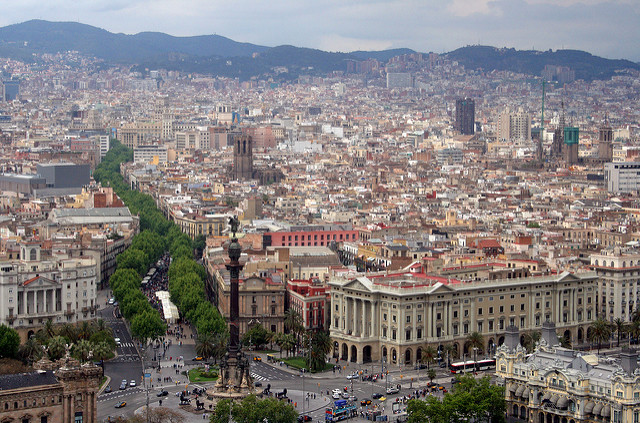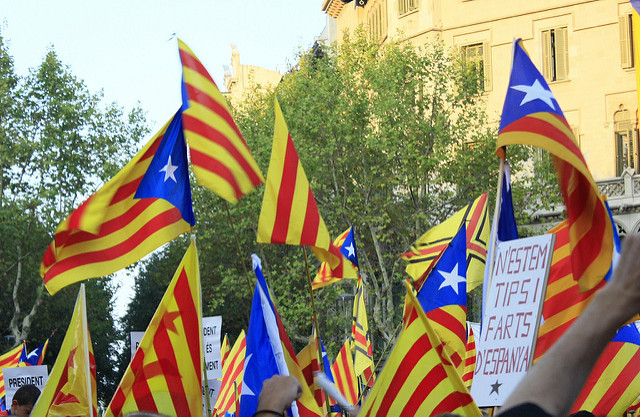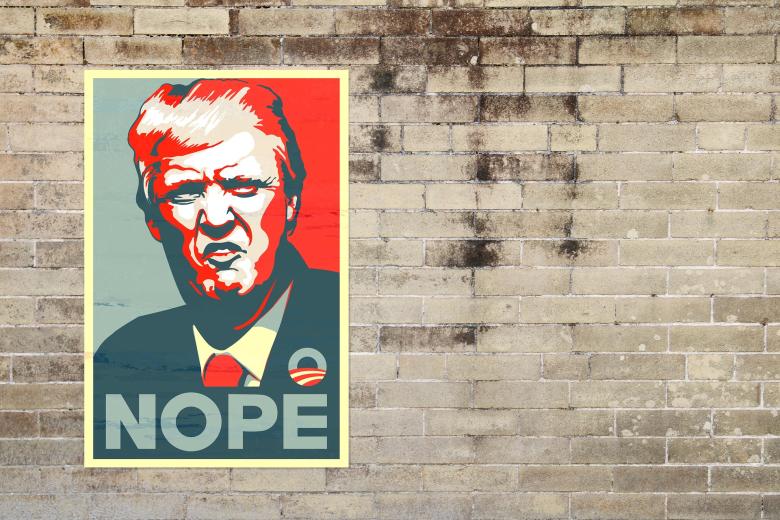Far from Barcelona - long read
How the Puigdemont Affair demonstrates the relevance of the European Arrest Warrant.
It is not every day that a regional court in Germany is called upon to deal with weighty affairs of state. However, this was precisely the conundrum that the Superior State Court of Schleswig-Holstein, in Germany’s northernmost state found itself with. It was the latest twist in the Catalan secession crisis, which had begun with months of preparations for a plebiscite on Catalan sovereignty, warnings by the Spanish government that such a call to the ballot boxes would be deemed illegal and the subsequent (abortive) staging of the referendum – marred by accusations of disproportionate violence by Spanish law enforcement on Referendum Day (1 October 201) itself. The man who had triggered this turn of events, former regional premier Carles Puigdemont, decided to not take his chances with the Spanish justice system – especially as he had been repeatedly warned that the Spanish Constitution did indeed not permit unilateral secession from Spain without the latter’s consent.

With plenty of blame to go around (and deserved by both sides of the equation), the embattled Spanish government of Prime Minister Mariano Rajoy used a hitherto obscure constitutional provision to dissolve Catalonia’s legislative assembly, suspend its regional government’s operation and impose direct rule from Madrid – in an unprecedented interference with the region’s constitutionally guaranteed autonomy. After a spirited campaign and contrary to previous predictions, the political parties favouring Catalan secession managed to retain their majority in the Legislative Assembly. It was against this backdrop that the Superior State Court found itself contemplating Mr Puigdemont’s future. The former premier of Catalonia had spent several months in Brussels, attempting to evade extradition to Spain. It was after a recent trip to Finland, on his way back to Brussels, when Mr Puigdemont found himself on a country road in Germany’s north (or so one imagines) where he was apprehended by the police. Spain, after several changes of heart, had reactivated a European Arrest Warrant against the separatist leader – charging him with rebellion and extradition. Now, before proceeding any further, it is important to remind ourselves of the provisions in question.
Spanish Law and Secession
At the outset, Article 2 of the 1978 Spanish Constitution states: “The Constitution is based on the indissoluble unity of the Spanish Nation, the common and indivisible homeland of all Spaniards; it recognises and guarantees the right to self-government of the nationalities and regions of which it is composed and the solidarity among them all”. This essentially sums up the bargain inherent to the functioning of Spain’s system of government: the country’s regions (autonomous communities such as Catalonia, the Basque Country, Andalucía, Castille and Leon, Galicia and many others) essentially affirm their loyalty to the unity of Spain, whilst obtaining wide-ranging autonomy on issues such as education, health, social services, aspects of policing and, in some cases, the regulation of languages used in everyday life (similar to the privileges enjoyed by Québec within Canada). Additionally, the autonomous communities (originally built upon Spain’s historical pre-Civil War provinces) also happen to have wide latitude in spending funds disbursed to them.

The “problem”, from the perspective of those seeking to remain at an arm’s length from Madrid, is the fact that those funds are disbursed by the Spanish government via a system of equalization payments (not too dissimilar from that in place in Germany or Canada) – which results in wealthy regions financing their poorer counterparts. This system certainly caused plenty of resentment in Catalonia over the years – something that led to last year’s secession referendum. It is important to bear in mind that the Catalan regional government staged this purported plebiscite without an agreement with Spain’s government (which has been completely unwilling to even discuss the issue of Catalan independence) or legislation by Spain’s Parliament. The hard line taken by the Spanish government stood in stark contrast to similar situations in Scotland or Québec, where the respective national governments (and legislatures) permitted the staging of an independence referendum. Since Mr Puigdemont and his cabinet went ahead with the purported secession vote anyway and then, by virtue of their majority in the Catalan Legislative Assembly, formally declared independence, they were subsequently charged with rebellion and misappropriation of public funds.
Crucially, Article 472, clause 5 of the Spanish Criminal Code defines the offence of “rebellion” in the following manner:
“A conviction for the offence of rebellion shall be handed down to those who violently and publicly rise up for any of the following purposes: 5. To declare the independence of any part of the national territory”
Not Quite Compatible: The European Arrest Warrant
Considering the fact that Spain has requested the transfer of Mr Puigdemont by virtue of a European Arrest Warrant, it is also essential to consider 2002/584/JHA, the Council Framework Decision on the European Arrest Warrant (“the Framework Decision”).
According to Article 2(1) of the Framework Decision, a European Arrest Warrant may be issued “for acts punishable by the law of the issuing Member State by a custodial sentence or a detention order for a maximum period of at least 12 months or, where a sentence has been passed or a detention order has been made, for sentences of at least four months”. Indeed, Article 473(1) of the Spanish Civil Code states that the punishment for “ringleaders” of a rebellion (and being the Premier of Catalonia presiding over a secessionist government would certainly qualify him to be designated as a ringleader) would result in a prison sentence of 15-20 years.
However, Article 2(2) of the Framework Decision continues by listing an ample number of offences for which the arrest warrant may be issued, however no mention is made of any offence resembling “rebellion” under Spanish penal law. Instead, the default category in the framework decision is found in Article 2(4) of the Framework Decision, which states that “For offences other than those covered by paragraph 2, surrender may be subject to the condition that the acts for which the European arrest warrant has been issued constitute an offence under the law of the executing Member State, whatever the constituent elements or however it is described”.

Way Up North
Consequently, it was for the German judiciary – more specifically, the Superior State Court of Schleswig-Holstein (“the Superior State Court”), to make a determination regarding the vexed question of “rebellion”. Indeed, there has been a vigorous discussion as to whether Mr Puigdemont’s actions would amount to rebellion at all, especially considering that unlike the terrorist campaign of the Basque ETA, the Catalan regional government’s push for independence was not based on the summoning of armed rebellion or predicated upon the violent overthrow of the constitutional order (which is, arguably, what Spanish domestic law requires). Indeed, there is a provision in German’s Penal Code, namely section 81, which states that:
“Whosoever undertakes, by force or through threat of force
- To undermine the continued existence of the Federal Republic of Germany or
- To change the constitutional order based on the Basic Law of the Federal Republic of Germany,
Shall be liable to imprisonment for life or for not less than ten years”.
Referring to previous jurisprudence by the Federal Administrative Court, the Schleswig-Holstein Superior State Court held that Mr Puigdemont could not be transferred to Spain for the count of “rebellion”, as the offence outlined in Article 472, sections (5) and (7) of the Spanish Penal Code would not amount to conduct punishable by law in Germany. The court’s decision turned on the concept of “violence” – it clarified that for the element of violence to have been fulfilled, the mere threat or even commissioning of violent acts to sway institutions of government to act in a certain manner. Instead, the standard required was the use of violence towards third parties in such a severe manner as to amount to an effective coercion of the will of the institutions of government. Whilst ascribing the responsibility for the violence on Referendum Day to Mr Puigdemont, the Superior State Court also underlined that it was not so systematic as to force Spain’s “surrender in the face of the demands of the perpetrators of violence”.
Time for Balanced Approaches
The State Superior Court also underlined that Mr Puigdemont could still be transferred under the European Arrest Warrant for the charge of having misappropriated public funds in the planning and organizing the referendum. Indeed, misappropriation of public funds is a crime under German law as well – and may very well end up being the offence on which the former premier’s fate will turn. However, given that the more severe offence of “rebellion” was no longer on the table, the flight risk had substantially decreased, thus leading to Mr Puigdemont’s release earlier today (on bail) pending the outcome of the European Arrest Warrant proceedings. The court decision essentially puts the Spanish judiciary in a very difficult position. If they wish to try Mr Puigdemont, they cannot do so for the primary charge of inciting a rebellion – they could only have him extradited for the lesser charge of misappropriation of public funds. This may put a strain on the relationship between two key Member States of the European Union.
That being said, there is something to be said for the independence of the judiciary in Europe, and it not bowing to political imperatives – even if that inevitably means a bit of a rough ride in diplomatic terms. The rule of law is not easy. Indeed, it is not supposed to be easy, but to be challenging and inconvenient. Whatever one may think about the (lack of) merits of Catalan independence, whatever position one may take on Spain’s reaction to Mr Puigdemont’s comparably fumbled and (yes, illegal) attempt at secession and whatever one may believe the appropriate use of the penal code to deal with a political question, one would hope that all sides could agree that this decision by a court represents one of the very best instances of the European arrest warrant system and an active, fearless judiciary in action – a judiciary that questions its colleagues, faithfully implements European standards of extradition and seeks to do right by all sides in an impossibly protracted conflict.
Maybe yesterday’s decision is an appropriate reminder that the settlement of the Catalan issue, even if it “merely” amounts to an enhanced Statute of Autonomy, does not lie in litigation, but political deliberation between all sides involved. It’s time for a toning-down of hostilities, and for the European Union to step in as an honest broker (not as an advocate for or against independence) – especially in order to avoid the embarrassment of other Member States having to provide a running commentary on the Catalan secession crisis.
All images by Flickr: Creative Commons Licence: Barcelona city, Flags Catalunya, nou estat d' Europa, Lighthouse Westerhever
| More blogs on Law Blog Maastricht |
-
Emergency for a wall?
Is it legally possible for Trump to invoke an emergency in order to avoid Congress and obtain the necessary funds to build his wall? Or put differently: is it possible under US law to undo the refusal of Congress to appropriate the necessary funds?

-
Sovereignty in a globalised and polarised world?
What does sovereignty mean in today’s world, given trends of globalisation, Europeanisation and also polarisation?

-
Brexit and citizenship II: Associate EU citizenship
Why would the EU at all consider unilaterally offering a new status to British (or other former EU) citizens without there being any reciprocal status or legal protection for EU citizens living in the UK (or any other exiting Member State)?
